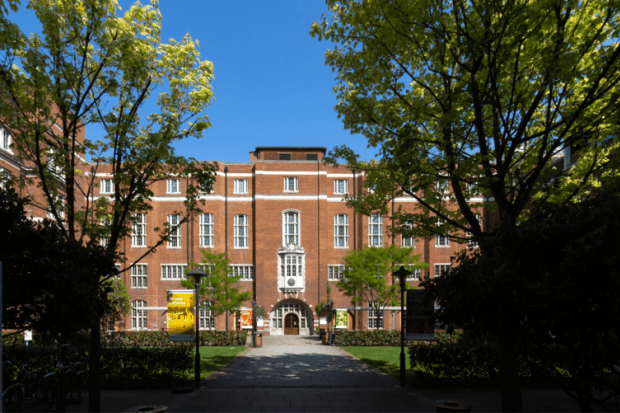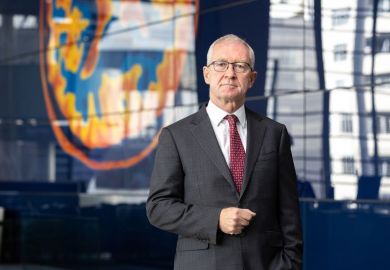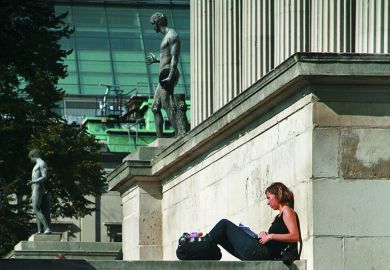As places of learning and intellectual honesty, universities need to learn lessons from their own history. Sometimes the lessons are painful, sometimes they are inspiring.
The discussion about how best to respond to those lessons can become heated. One regius professor calls them “history wars”. We should not shy away from the task of better understanding and addressing our history simply because it may be difficult. We owe it to our community and broader society to celebrate the good and confront the bad.
Last year, Imperial College London set in train a series of initiatives focused on addressing racial inequalities and becoming more inclusive. We introduced new scholarships for Black British students, among other under-represented groups. We also commissioned a group of esteemed colleagues to review our history and legacy.
Now we are publishing their findings and encouraging the broader Imperial community to join a dialogue about what steps we should take. There are some surprising and remarkable facts that we need to better understand. That understanding should include both historical context and how our community experiences and interprets that history today.
Universities are communities of learning and debate. Confident forward-looking institutions like Imperial promote free speech, open dialogue and strive for a richer understanding of the history that shaped us. While we cannot change that history, we can find ways to clarify what it means, learn lessons from it, and ensure that we are not perpetuating legacies that we find abhorrent.
During our review, some truths emerged about prominent figures woven into our heritage. These include the exploitation of African mineworkers by 19th-century gold and diamond magnate Alfred Beit, a major benefactor whose bust sits outside one of our buildings and after whom one of our halls of residence is named. Another example is T. H. Huxley’s advocacy of “race science”, even though Huxley was a path-breaking biologist, robust defender of evolution (“Darwin’s bulldog”) and passionate opponent of slavery.
The report also shows where we can do more to celebrate forgotten and overlooked parts of our history, including exceptional women, people of colour and refugees from totalitarianism. Imperial would not be what it is without the great contributions of the likes of Margaret White Fishenden, an industrial researcher who authored seminal textbooks on heat transfer in the 1930s and 1940s, Abdus Salam, a Pakistani theoretical physicist who shared the 1979 Nobel Prize in Physics for his contribution to the unified theory of weak electromagnetic interaction, and Dennis Gabor, a Hungarian electrical engineer who won the 1971 Nobel Prize in Physics for inventing holography.
We know that there is much more to be done beyond understanding our history. Black scientists are significantly less likely to be employed as professors than researchers from all other backgrounds. The Royal Society recently pointed to science’s institutional racism problem. For many members of our community, this is not some abstract debate about arcane historic figures; these are current realities that can adversely affect personal and professional lives.
It is clear that there are rarely simple answers to how to address the past actions of the complex, brilliant and sometimes flawed figures who shape great universities like Imperial. Therefore, we steadfastly support and encourage a full and open dialogue where everyone feels free to express their views. We will protect free speech.
Learning and understanding more about our past, as well as the values we want to reflect today, strengthens our culture. It is the opposite of so-called “cancel culture”.
We have dealt with disturbing historical connections before. Our geologists decided to rename their student society, distancing themselves from the slaveholder Henry De la Beche. Our diverse student community felt that the source of his wealth was not in line with our values.
Our department of infectious disease hosts an annual lecture named after typhoid vaccine pioneer Almroth Wright. Wright was a notorious misogynist, opposing women’s suffrage and women becoming scientists. The department decided to invite exceptional women scientists to deliver the lecture. As one Wright lecturer recently said, with some relish: “He must be turning in his grave.”
There are tangible changes we can make that will improve our community and culture and give people a stronger sense of belonging. Just as important as the changes is the dialogue that will help everyone understand more about our past and think afresh about the values universities like Imperial want to reflect.
A nearby higher education institution, City, University of London, recently renamed its Cass Business School on account of Sir John Cass’ 18th-century membership of the slave-trading Royal African Company: the school is now named after mathematician Thomas Bayes instead. Sathnam Sanghera, author of Empireland: How Modern Britain Is Shaped by Its Imperial Past, observed that the school was “thinking hard about its history and its place in the world, which is what universities are meant to do”.
Whatever we at Imperial ultimately decide to do, our community will benefit from an open dialogue that increases our understanding of our past and, perhaps more importantly, of each other. These conversations are never merely about the past; this one will illuminate our future.
Alice Gast is president of Imperial College London.
Register to continue
Why register?
- Registration is free and only takes a moment
- Once registered, you can read 3 articles a month
- Sign up for our newsletter
Subscribe
Or subscribe for unlimited access to:
- Unlimited access to news, views, insights & reviews
- Digital editions
- Digital access to THE’s university and college rankings analysis
Already registered or a current subscriber?








